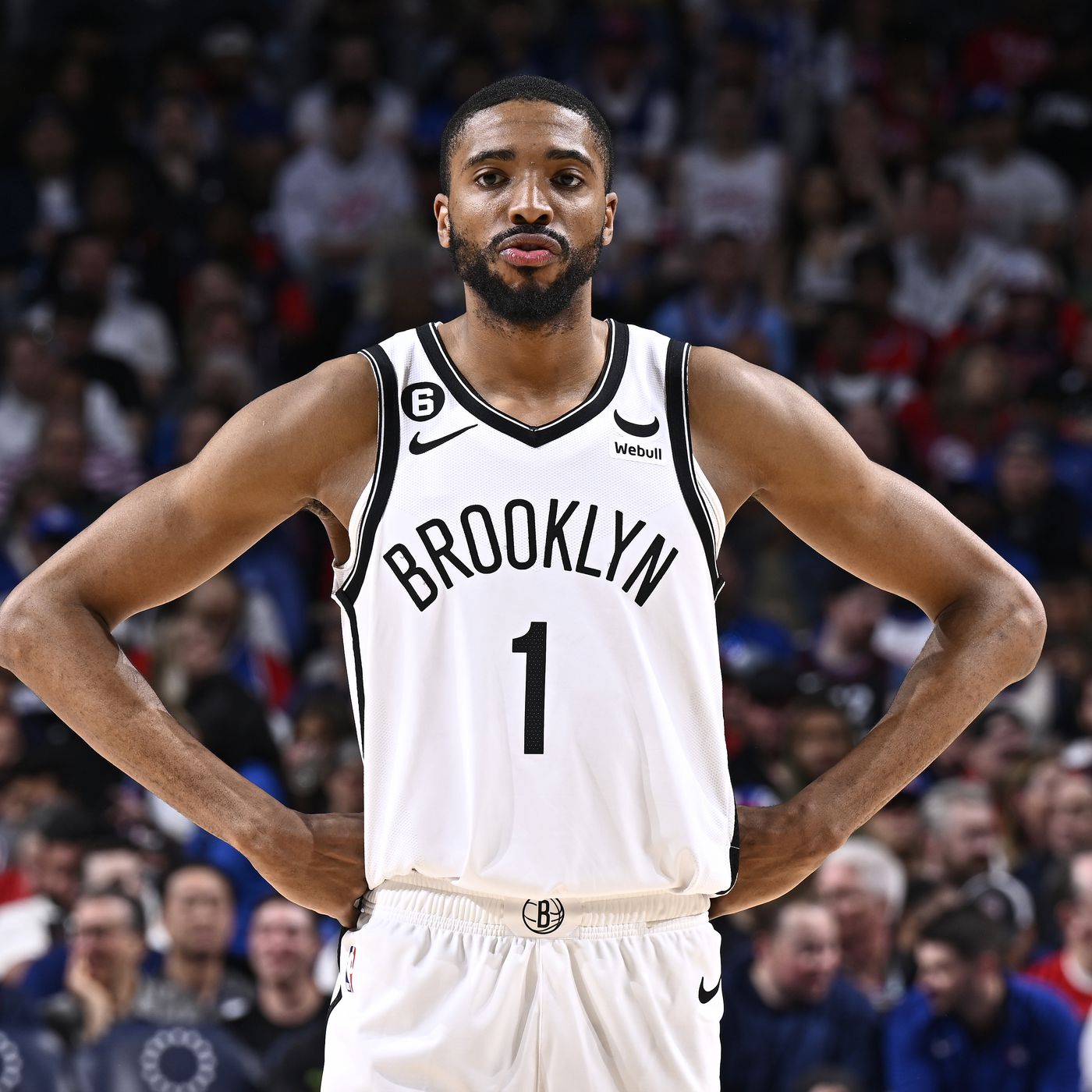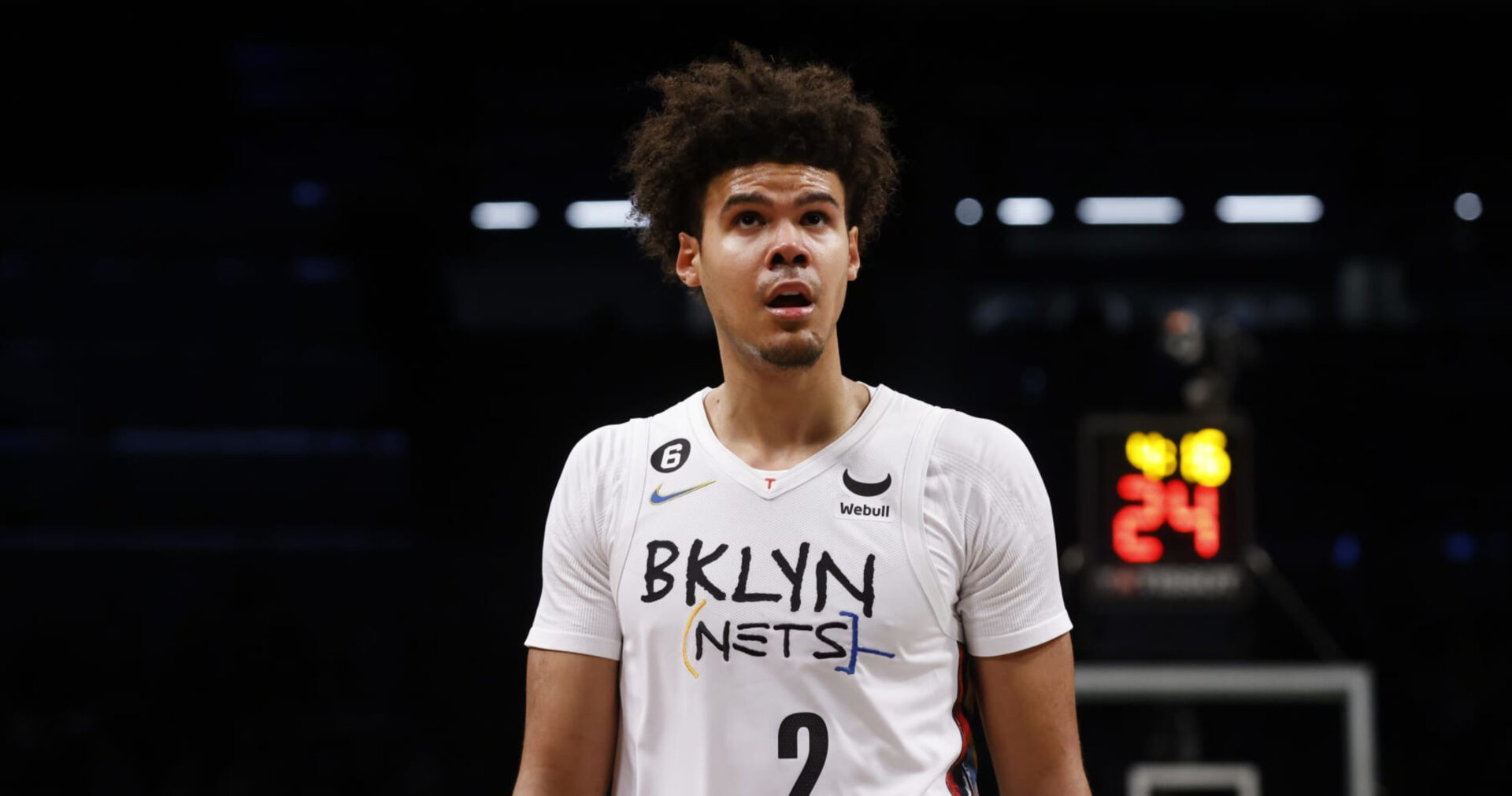
By: Ross Sutton
Mikal Bridges might be the best player that the Nets received from the Suns in the league-altering Kevin Durant trade, but Cam Johnson is a very valuable asset in his own right, and with Johnson set to become a free agent this summer, he is in line for a big pay day. The Suns decided to not extend Cam Johnson prior to the rookie extension deadline at the beginning of this season, and the Nets are lucky that Phoenix made this decision. If the Suns had extended Johnson before this season, then he would have been subject to the “poison pill” provision of the CBA that is applied to players that are extended prior to the rookie extension deadline and subsequently traded during the final year of their rookie contract. This provision makes it nearly impossible to trade effected players due to the implications that the “poison pill” has on salary matching in trades. Luckily for the Nets though, Johnson was not extended by Phoenix prior to this season, so they were able to acquire him in the Durant trade. Assuming the Nets extend a qualifying offer to Johnson, he will be a restricted free agent this summer, meaning Brooklyn will have the chance to match any offer sheet that Johnson signs with another team and retain him.
Since the Nets are the incumbent team and have the right of first refusal and can retain Johnson by matching any offer sheet signed by Johnson with another team, if a team really wants Johnson, then they will try to make the contract as unpalatable to the Nets as possible so that Brooklyn won’t want to match the deal. For this reason, it would behoove the Nets to try to come to an agreement with Johnson rather than relying on their ability to retain Johnson by matching an offer sheet. One factor that bodes well for the Nets in negotiating a contract with Johnson is that they can offer him more money than any other team can since they have his Bird rights. This means that the Nets can offer Johnson 8% annual raises, whereas other teams can only offer 5% raises. Additionally, the Nets could also offer Johnson a 5-year contract, whereas other teams can only offer a 4-year contract. Therefore, even though Johnson could hypothetically receive a very player-friendly offer sheet with a player option and/or a trade kicker from a team other than the Nets, Brooklyn has some valuable bargaining chips that could allow for them to re-sign Johnson without having to match an offer sheet. I also think there is a good chance that Johnson will want to stay in Brooklyn long-term, as he is a key piece of a team that is on the rise, and it is well-documented that he and Mikal Bridges are very close friends.
So with all that being said, what might Cam Johnson’s new contract look like? In my opinion, Johnson is similar to players such as Mikal Bridges and Deandre Hunter, and in terms of contract value, I expect Johnson to land somewhere between the two, below Bridges and above Hunter. There is something to be said for the fact that Bridges and Hunter signed their deals as extensions, so their salaries might be a bit suppressed as a result of no other teams being allowed to negotiate with them at the time the contracts were signed, but I do not think this will effect how much Johnson is offered by that much.
The best way to analyze these contracts is to look at the first year adjusted salary, meaning adjusting the first year salaries of Bridges’s and Hunter’s deals based on how much the league cap has inflated since those deals were signed. The first year adjusted salary (FYAS) for Mikal Bridges’s deal is $23,100,364 and since Hunter’s deal does not start until this upcoming year, no adjustment is needed and his first year salary will be $20,089,286. So based on these numbers, I think it would be reasonable for Johnson to receive about $21M in the first year of his new contract. With 8% raises, the following three years of this hypothetical 4-year deal would pay Johnson: $22,680,000; $24,360,000; and $26,040,000, respectively. The total value of this contract would be for 4 years and $94,080,000, for an average annual value of $23,520,000. This would be a little more than what most people seem to expect Johnson to earn in his new deal, but Johnson has played well with the Nets so far and he is establishing himself as a key part of this team’s new core, averaging nearly 17 points per game in 12 games with his new team. Furthermore, Johnson will surely receive a lot of interest from other teams around the league in free agency, as 3-and-D wings are very valuable in today’s game, so I don’t think this contract would be unreasonable given the circumstances.








No Comments